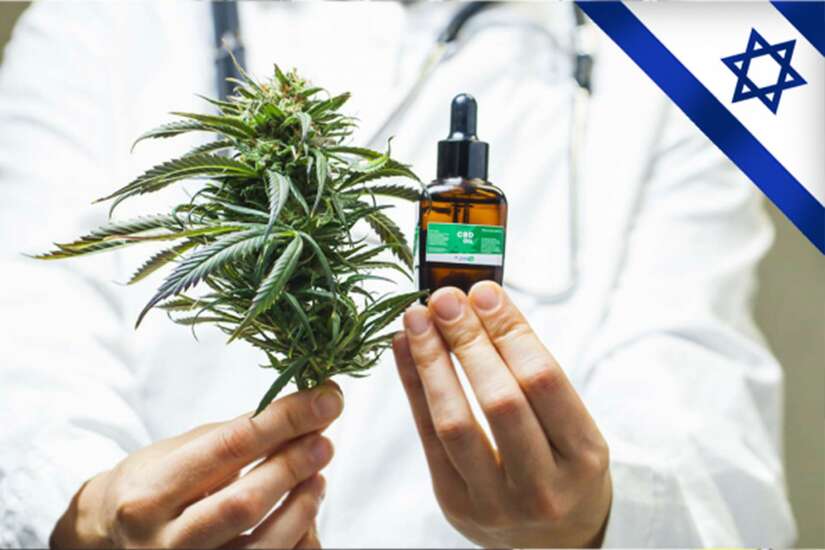In recent news, a team of researchers from the Hebrew University of Jerusalem led by Prof. Alexander Vainstein developed a cannabis plant that produces higher levels of cannabinoids, a group of psychoactive and therapeutic substances unique to the species.
Using a special kind of a harmless plant virus, the scientists increased the expressions of genes in the plant’s DNA so that it started to produce 17% more THC (weed’s main mind-altering ingredient), 25% more CBG (a related non-psychoactive molecule), and 20-30% more terpenes (aromatic compounds that give cannabis its signature smell and modify its effect on the smoker).
This development is the first instance of the direct manipulation of the cannabis genome in the lab. Any genetic modifications so far have been achieved through selection and breeding only – which mankind learned thousands of years ago and has practiced on countless plants and animals.
It’s also no accident that the breakthrough was made at the Hebrew University – the same institution where, in the 1960s, Prof. Raphael Mechoulam, whom they call the “father of cannabis research”, made his revolutionary findings – including the discovery, isolation, and synthesis of THC and other cannabinoids.
Always at the Forefront of Research
The tradition of rigorous studies into everything that has to do with cannabis – from plant science to agriculture to medical research to human trials – has been very strong in the country. Israel is one of only three nations where cannabis research is sponsored by the state as the Ministry of Health not only accepts applications from scientific teams but also finances the most promising projects to the tune of 8 million shekels ($2.33 mln) a year.
Thanks to relatively lax standards and procedures – compared with such countries as the US – Israel has emerged as the world’s hub for marijuana studies. At least 50 American companies have moved their cannabis R&D teams to Israel and invested more than $125 mln into the local economy in 2016 alone.
Pioneers of Medical Marijuana
Israel seems to be just as forward-thinking as far as the medical use of cannabis is concerned. The plant and its derivatives were approved for use by some categories of patients in the 1990s – around the same time as a similar move was made in California. To become a medical patient in Israel, you need to apply for a license and get a prescription from your doctor.
There are at least 50,000 Israelis who smoke cannabis or use plant-derived extracts and other kinds of medicine for pain associated with cancer, MS, Parkinson’s, Crohn’s, and other chronic pain, as well as PTSD. Moreover, even the military now tolerates their members treating post-traumatic stress disorder with medical marijuana.
There are eight grow facilities that have a government license to cultivate medical marijuana and supply patients through their own stores or a medical center. There’s also a company, Tikkun Olam, that develops medicinal genetic lines with different chemical compositions (including specific THC-to-CBD ratios) to better treat different conditions. With over 230 strains, Tikkun Olam is one of the global leaders in its field.
The Criminalization Isn’t Over Yet
Despite a progressive regulatory climate and widespread medical use, the criminalization of cannabis in Israel continues. The plant still isn’t legal to grow and possess by unlicensed individuals although these activities are largely decriminalized, meaning no jail time or even criminal prosecution for those otherwise law-abiding adults who grow, store, and smoke cannabis in the privacy of their homes. It is also impossible to buy cannabis seeds in a brick-and-mortar shop in Israel although it can be easily done online.
At the same time, public support for reform is growing in Israel as the use becomes more common. It was estimated that about 27 percent of adults aged 18 to 65 have used cannabis in the previous 12 months, which makes the country the world’s undisputed leader in annual consumption. The issue of cannabis legalization enjoys a broad consensus among the country’s political parties, and there’s one party, the Green Leaf Party, whose sole reason for existence is to further legalization efforts. Although it has yet to get a seat in Knesset, it’s likely that other political forces will pass some broad legalization law in the not too distant future.

